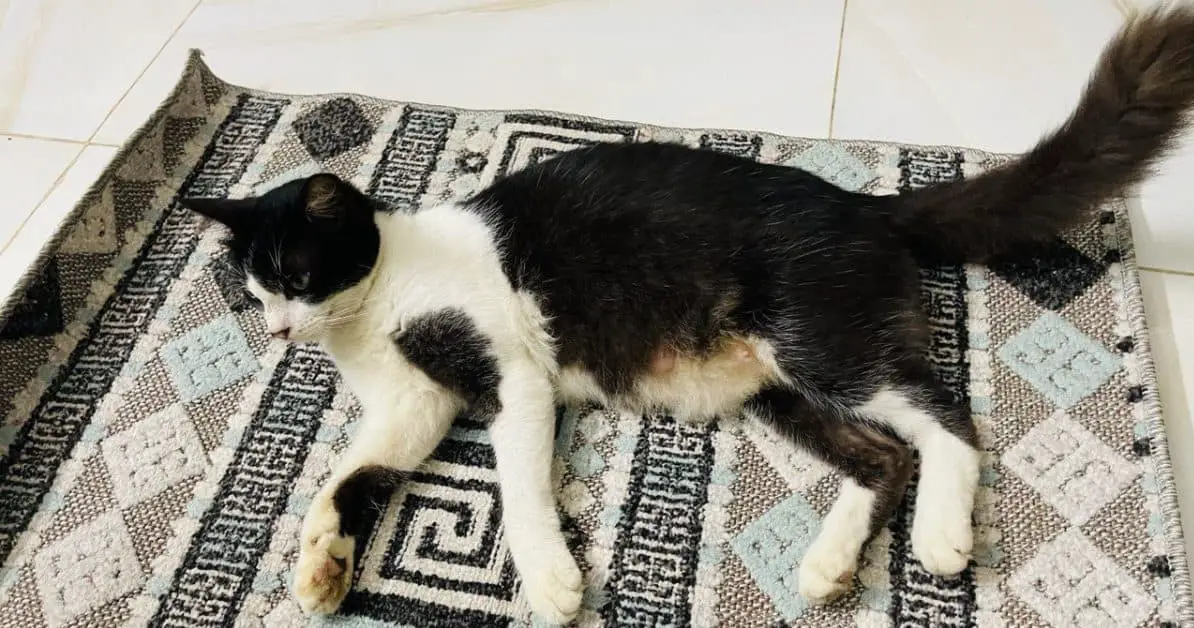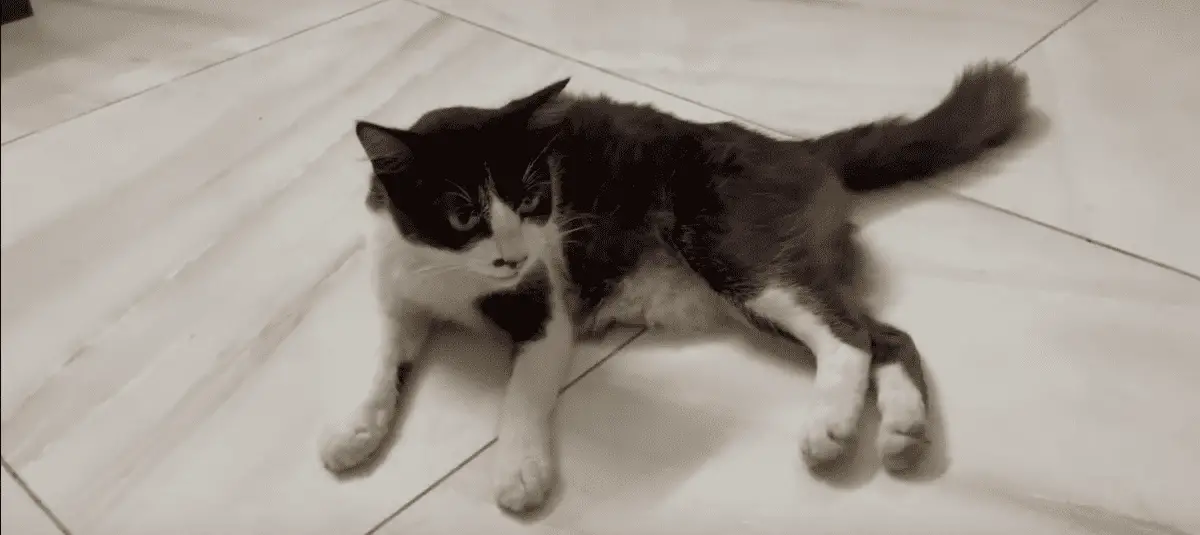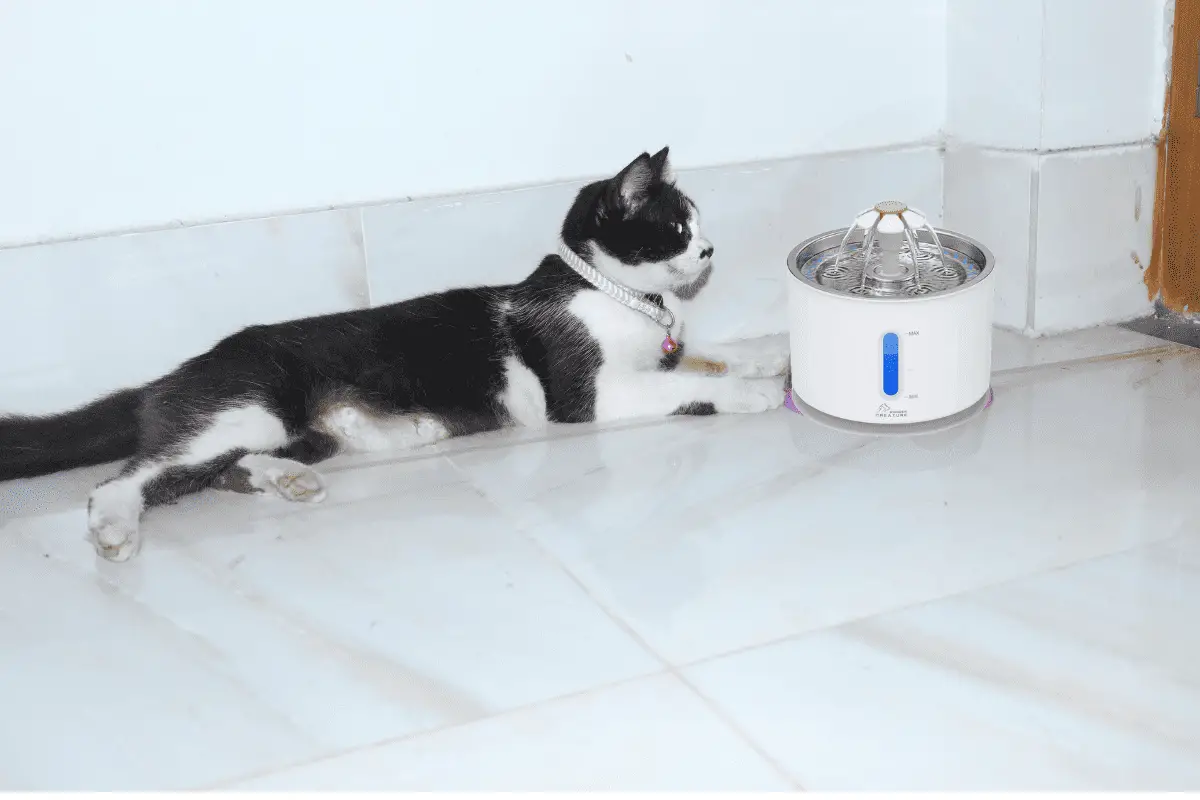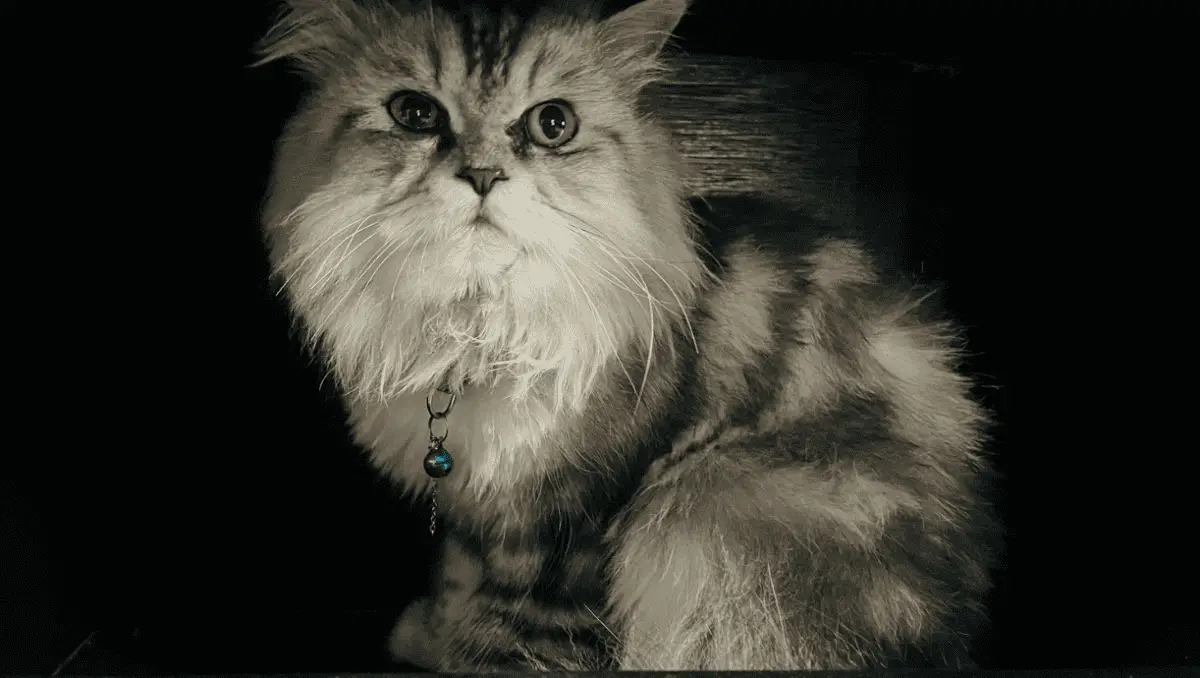Owning a cat is a joyous experience filled with cuddles, playtime, and companionship. I’m the proud owner of a beloved 2-year and 8-month-old mixed Persian cross cat named Muezza. I have cherished moments with her, but my cat used to pee on my doormat.
Why does my cat pee on my doormat? The first thing I noticed was fear and anxiety. Next was when she had medical issues, then an unpleasant litter box experience, and marking her territory. All these and more were the reasons I discovered.
But finally, I managed this issue effectively. In this article, I’ll share my experience of dealing with these situations. Also, it offers insights and solutions to fellow cat owners facing a similar predicament.
Why Does My Cat Pee On The Doormat?
Before we address the problem, it’s essential to understand the root cause of why cats choose the doormat as their peeing spot. Cats are creatures of habit, and any environmental change can stress them out.
Ultimately, the reasons for this behavior are as follows.
1. Marking Territory
Cats are territorial animals, and they use urine marking as a way to establish their territory and communicate their presence to other animals. Once your cat pees outside the litter box, the smell can linger and attract them back to the same spot, marking the area as part of their territory. Also, cat makes territorial marking on the doormat if they encounter other neighbourhood cats outside.
● Solution
Cleaning and Deodorizing: I made sure to promptly clean and deodorize the doormat with pet-safe cleaning agents. The use of vinegar and baking soda as cleaning agents helps neutralize the odors effectively.
Supervised Outdoor Time: If your cat has access to the outdoors, supervise their outdoor activities to prevent territorial marking on the doormat. I restricted Muezza’s outdoor activities at one time to curb his bad behavior.
2. Stress and Anxiety
Changes in the household, such as new pets, visitors, or a change in routine, can trigger anxiety and behavioral act that leads to inappropriate peeing.
● Solution
Minimize Stress and Anxiety: Reducing Muezza’s anxiety was crucial in curbing inappropriate behavior. I provided her with interactive toys, scratching posts, and plenty of playtime to keep her mentally stimulated and physically active.
Additionally, I designated a special spot near the window where she could observe the outside world without feeling threatened by the presence of other cats.
- Routine: Regular feeding times, play sessions, and litter box cleaning helped her feel secure and reduced her anxiety. Furthermore I always praised and rewarded Muezza whenever she used her litter box correctly.
3. Texture Inclination
Certain felines might exhibit a preference for the doormat’s texture. It leads them to urinate on it.
● Solution
Altering the doormat’s texture: Invert the doormat. This will modify its surface, potentially deterring your cat from using it as a pee spot.
4. Unpleasant Litter Box Experience
If the litter box is dirty and smelly, or you placed it in an inconvenient or noisy location, your cat may avoid using it. The presence of unfamiliar scents like visitor’s belongings, and other animals near the doormat may provoke your cat to mark the area with its urine.
Cats are clean animals and prefer a pristine and private environment for their toileting needs.
● Solution
Using Attractants: To encourage Muezza to use her litter box consistently, I employed the use of cat attractants. I applied a small amount of deterrents like motion-activated alarms, citrus-scented sprays, or double-sided tape near the litter box, gently guiding her to the appropriate spot.
Additionally, regularly clean and scoop the litter box to keep it inviting for your feline friend.
5. Inadequate Litter Box Options
If you have multiple cats in your house, there may not be enough litter boxes to meet each cat’s needs. Some cats resort to using alternative locations, like the doormat, if they find the litter boxes overcrowded or unsuitable.
● Solution
Multiple Litter Boxes: Keep more than one litter box in the house. This will give your cat multiple options and prevent territorial issues.
6. Medical Issues
Before assuming it’s a behavioral problem, ensure your cat is not suffering from any underlying medical conditions. Sometimes, underlying medical problems like urinary tract infections or kidney issues can cause cats to avoid the litter box.
● Solution
Rule Out Medical Issues: Take your cat to the veterinarian for a thorough check-up. Treat any urinary tract infections or other health issues that may be causing discomfort.
If the behavior persists despite your best efforts, don’t hesitate to seek guidance from a professional veterinarian or animal behaviorist. They can provide tailored advice and solutions based on your cat’s specific needs and circumstances.
The Don’ts of Dealing with Your Peeing Cat
Dealing with a cat peeing on the doormat requires patience and understanding. While there are effective strategies to address this behavior, it’s essential to be aware of the “Don’ts” to avoid making matters worse for your feline companion.
Here are the key “Don’ts” when dealing with the issue:
Don’t Punish Your Cat
Punishing your cat for peeing on the doormat or anywhere else outside the litter box can create fear and anxiety, making the problem worse. Cats do not associate punishment with their past actions, so scolding or yelling will only confuse and stress them.
Don’t Use Harsh Cleaners
Avoid using harsh cleaners, ammonia, or products with a strong scent to clean the doormat. These can intensify the smell and might even attract your cat back to the same spot for marking.

How To Choose The Right Type of Litter Box for Your Cat?
- Consider your cat’s size and age when choosing the litter box. That is ensure that the litter box for your cat is a minimum of 1.5 times longer than your cat’s body length (tail excluded). Equally important, the width should be no less than the cat’s length. Recommended litter box size for average adult cat: 24 inches long, 4-inch high walls. Cats 18-20 inches long need boxes at least 35 inches long.
- Evaluate your cat’s mobility and choose a litter box with a low entry for easier access. Especially if your cat has arthritis or joint issues, look for litter boxes with lower sides for easier entry.
- For kittens, opt for shallow litter boxes to accommodate their smaller size.
- Multi-cat households may require larger or multiple litter boxes to avoid overcrowding.
- Determine if your cat prefers an open or covered litter box based on their behavior and preferences.
- Choose a litter box with high sides if your cat tends to kick litter out of the box.
- Select a sturdy and durable material, such as plastic, for the litter box.
- Consider self-cleaning litter boxes for convenience, but ensure they are well-maintained.
- Place the litter box in a quiet, private area away from high-traffic zones to promote your cat’s comfort and reduce stress.
- Monitor your cat’s response to the new litter box, and be prepared to try different options if needed.

FAQs
Here are some additional questions that people ask about cats peeing on a doormat. Check them for further information.
What are some alternative litter box options for cats that are too big for standard litter boxes?
The Jumbo Litter Boxes are generously sized boxes that provide ample space, ensuring larger cats can be comfortably accommodated.
Can changing the litter type prevent my cat from peeing on the doormat?
Yes, Certain cats may favour soft surfaces, such as rugs or mats, for elimination. Transitioning to a natural, fine-textured litter, like paper, corn, or wood-based, can make the litter box more appealing for urination.
Does a covered litter box help prevent cat peeing behavior?
Yes, A covered litter box may offer privacy and reduce odors, which could help in some cases.
Final Words
Owning Muezza has been a rewarding journey filled with unforgettable moments of love and friendship. Dealing with her occasional behavior issue of Cat Peeing on Doormat was a challenge. But with patience, understanding, and the right approach, we overcame it together.
Remember, every cat is unique, so it’s essential to observe and respond to their needs accordingly. By creating a calming environment, you can foster a happy and harmonious relationship with your feline friend. Cherish the journey, and may your bond with your cat grow stronger with each passing day.






Leave a Reply